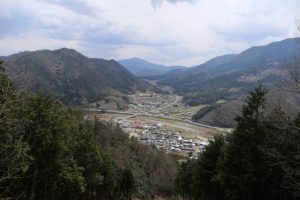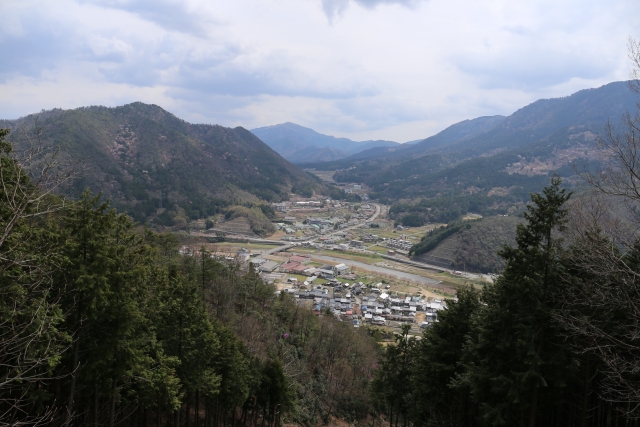Local Assemblies at Risk of Vanishing in Depopulated Areas
These articles present editorials from leading Japanese newspapers (Asahi, Sankei, Nikkei, Mainichi, Yomiuri) covering the same theme.
The Asahi shimbun: Encourage debate to improve local government in depopulated areas
The Sankei Shimbun: Vanishing village assemblies—this is real population decline
The Nikkei: Population decline casting doubt on state of local assemblies
The Mainichi Shimbun: Worthwhile to examine choice of resident general assemblies for small municipalities
The Yomiuri Shimbun: Debate over elimination of village assembly—can a resident general assembly work as a replacement?

The system of local assemblies is at risk in Japan’s depopulated municipalities. Due to the decreasing population and aging of the residents who remain, there are concerns in the village of Okawa, located in the mountains of Kochi Prefecture in Shikoku, that there will not be enough candidates to fill all the positions for the village assembly election in two years. In response, Okawa has begun examining the possibility of establishing a municipal general assembly with direct representation instead.
The current population of Okawa is around 400. This is one tenth of what it was at its peak, and seniors 65 years old or older now make up over 40% of the total population.
In this age of drastic population decline, a shortage of assembly members has become a common issue for municipalities in depopulated areas, and this same situation may occur not just in Okawa, but throughout Japan.
All five national dailies wrote editorials about Okawa establishing a municipal general assembly, a harbinger of the risk of “vanishing regional municipalities.” Overall, the editorials recognized the need to consider a municipal general assembly as an emergency measure, but also brought up the issues and problems involved, and called for the national government to work together with local governments to consider the state of local assemblies in depopulated regions.
■ Difficulties to Overcome for Municipal General Assembly
The Asahi (June 13), noting that the Local Autonomy Law recognizes “for towns and villages only, the establishment of a general assembly in which constituents can directly debate bills without a representative assembly,” stated that Okawa examining the establishment of a municipal general assembly is “completely understandable.” However, considering that over 20% of municipal assembly elections in the 2015 unified local elections were won by default, the paper noted that “a shortage of candidates is a shared issue for depopulated areas,” and argued against establishing a municipal general assembly as a “last resort”: “Changing the assembly into a general assembly won’t stop the decline of regional areas.”
The Asahi continued by asserting that “In reality, actually establishing a municipal general assembly would be difficult.” The paper listed two reasons for this: 1) A municipal general assembly requires over half of constituents to meet at once, but in a municipality like Okawa that covers a wide, mountainous area this is unfeasible; and 2) It remains in doubt whether a general assembly could fulfill the assembly’s role of deciding budgets and ordinances.
The Yomiuri (May 31) also argued, “As regional depopulation grows more severe, local assemblies must play a significant role. Whether eliminating one is the only choice must be carefully considered.” The reason given is that the establishment of a municipal general assembly, instead of a local assembly, “would mean the collapse of the system of dual representation by a mayor or governor and a local assembly, which forms the basis of local government.”
The Sankei (May 14) pointed out the seriousness of the situation: “This issue will not stop with just the state of local assemblies. This is what it looks like when, as depopulation continues and populations continue to age, the harmful effects of a society with a declining population begin to destroy local governments.” In particular, noting that “There are nearly 30 local governments with a population of less than 1000,” the paper emphasized, “The possibility of about half the local governments in Japan vanishing in the future has been raised.” Regarding the establishment of a municipal general assembly, the Sankei states, “Ordinances will have to be established to determine specifically how the local government will operate…. The larger problem is, even if the general assembly is established, that does not mean the problems Okawa is facing will be solved immediately,” arguing that a major issue is protecting residents’ daily lives, such as with the provision of public services.
The Nikkei (May 27) also noted that many specifics had to be decided, such as the requirements for establishing a municipal general assembly and the range of what could be decided by a general assembly. As a shift to direct democracy, the example of Utsuki Village (now part of Hachijo) in Tokyo was raised, as it had a general assembly for a short time after World War II. The paper commented, “A municipal general assembly should make it easier to directly reflect the opinions of residents in government. The lack of assembly members will also help reduce costs.”
The Mainichi (May 21) also stated that it “would be difficult” to establish a general assembly, and pointed out issues including ensuring constituents attend the assembly, how it would be operated, and how the breadth of topics debated at the assembly would be determined. However, the Mainichi was more positive about the idea than other papers, stating, “This is an argument to replace the functions of the local assembly with direct democracy. Although there are difficulties in bringing it about, it is worth considering.” The paper also suggested that IT solutions could be found so people who could not physically attend the general assembly could still participate in debates, and that by creating fair rules for running the assembly some issues could be solved, and argued, “The idea shouldn’t be approached with the assumption that it would be difficult to implement.”
■ Opinions Split on Comment by Minister for Internal Affairs and Communications
The editorials were divided in their response to Minister for Internal Affairs and Communications Sanae Takaichi’s comment that establishing municipal general assemblies “could be one option for municipalities with extremely low populations.” The Asahi argued that the national government should encourage municipalities to look into establishing general assemblies: “The national government should establish systems to make it easier to establish municipal general assemblies.”
The Sankei was more skeptical: “If local governments ask for advice, the Ministry for Internal Affairs and Communications will provide it. However, it can be predicted that if a village general assembly is actually made, running it won’t be so simple.” The Yomiuri also commented, “Doubts remain over suddenly establishing municipal general assemblies.” With the population declining and local governments in depopulated regions facing serious problems, one opinion that was consistent was, as noted by the Asahi, “The time has come for both the national government and local governments to think of an effective policy.”
*English translations are provisional. The content of this page was made by the Foreign Press Center Japan and does not reflect the opinion of the Japanese Government or any other organization.



